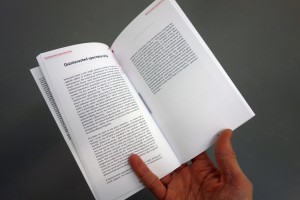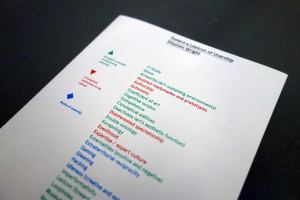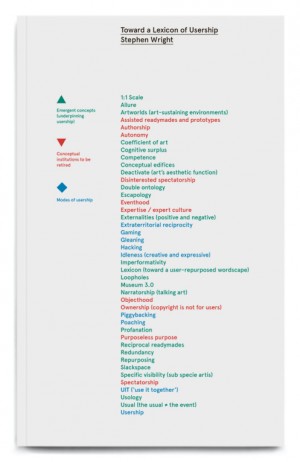A lexicon of terms has been written by theorist Stephen Wright for the Museum of Arte Útil and can serve as a textual tool kit. The lexicon includes terms that Wright feels should be ‘retired’ alongside what he refers to as ’emergent concepts’ and ‘modes of usership.’ Stephen Wright is a writer and professor at the European School of Visual Arts. Toward a Lexicon of Usership is edited by Nick Aikens and Stephen Wright and designed by Collective Works.


Toward a Lexicon of Usership, preface by Stephen Wright:
“The past several decades have witnessed what might be described as a broad usological turn across all sectors of society. Of course, people have been using words and tools, services and drugs, since time immemorial. But with the rise of networked culture, users have come to play a key role as producers of information, meaning and value, breaking down the long-standing opposition between consumption and production. With the decline of such categories of political subjectivity as organised labour, and the waning of the social-democratic consensus, usership has emerged as an unexpected alternative – one that is neither clear cut nor welcomed by all. For usership runs up against three stalwart conceptual edifices of the contemporary order: expert culture, for which users are invariably misusers; spectatorship, for which usership is inherently opportunistic and fraught with self-interest; and most trenchantly of all, the expanding regime of ownership, which has sought to curtail long-standing rights of use. Yet usership remains as tenacious as it is unruly. The cultural sphere, too, has witnessed a shift. Turning away from pursuing art’s aesthetic function, many practitioners are redefining their engagement with art, less in terms of authorship than as users of artistic competence, insisting that art foster more robust use values and gain more bite in the real. Challenging these dominant conceptual institutions feels disorienting, however, as the very words and concepts one might ‘use’ to name and clarify use-oriented practices are not readily available. All too often, user-driven initiatives fall prey to lexical captureby a vocabulary inherited from modernity. Yet no genuine self-understanding of the relational and dialectical category of usership will be possible until the existent conceptual lexicon is retooled. This requires both retiring seemingly self-evident terms (and the institutions they name), while at the same time introducing a set of emergent concepts. In the spirit of usership this may be done best by repurposing the overlooked terms and modes of use, which remain operative in the shadows cast by modernity’s expert culture.”
The Lexicon can be downloaded for free as a pdf:

